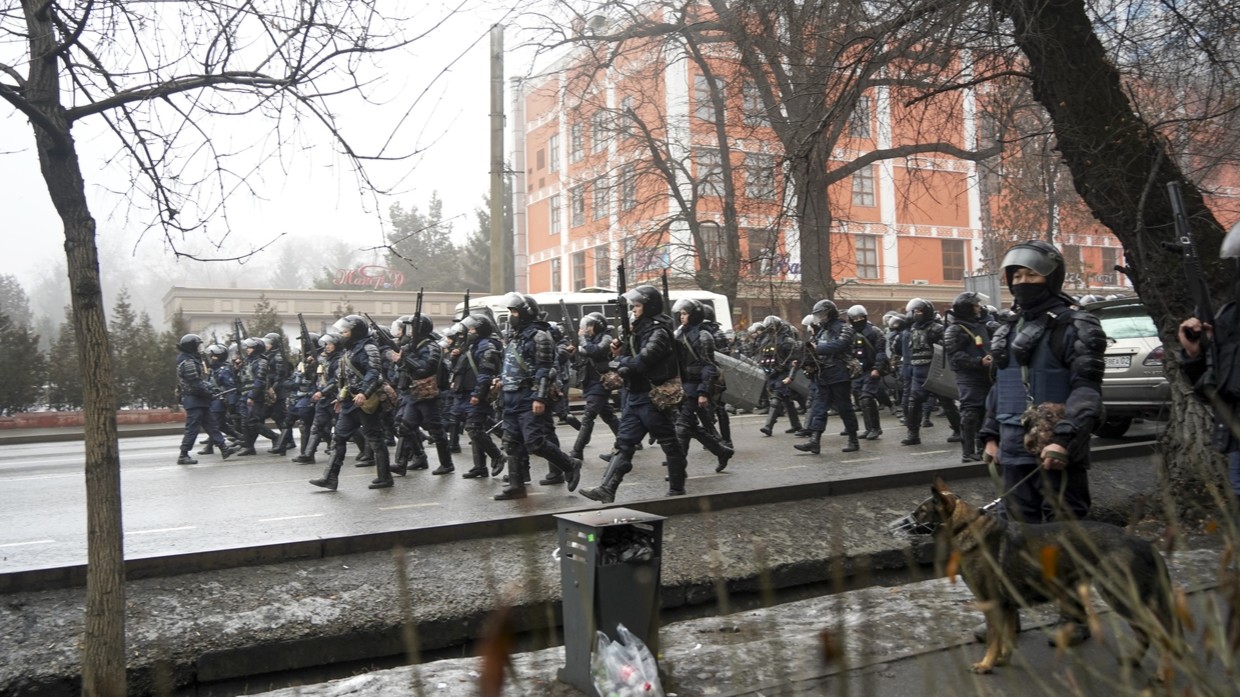Reports and videos of intense gunfire have emerged from the streets of Kazakhstan’s largest city, Almaty. It comes after authorities launched a “counter-terrorist” operation, blaming foreign-trained groups for chaos in the city.
The operation was launched late on Wednesday, shortly after Kazakh President Kassym-Jomart Tokayev branded the ongoing unrest a “terrorist attack." The president also said he has reached out to the Russia-led Collective Security Treaty Organization (CSTO) for help in getting a grip on the situation.
Footage circulating online, purportedly shot in Almaty, shows a large group of servicemen in riot gear walking though the middle of a street, with multiple explosions heard in the background.
Another video shows an empty street with two civilians running for cover amid heavy gunfire.
Meanwhile, the Almaty authorities told the media that while troops have been dispatched to the city, the “active phase” of the operation will not be taking place at night.
The city was overrun by mass protests earlier on Wednesday, with multiple government buildings, including the old presidential palace, stormed and set on fire. Almaty's airport was captured as well, with rioters seen torching vehicles outside the facility, as well as ransacking liquor from duty free stores and smashing up ATMs. The key transport hub has since been reportedly retaken by Kazakh state forces.
Scenes of widespread looting have been coming in from the country's largest city, with many stores, banks and other venues pictured ransacked empty.
Shortly before the start of the “counter-terrorist” operation, the country’s interior ministry provided an update on the casualties among law enforcement during the unrest.
“Some 317 police officers and members of the National Guard were injured, eight got killed. Law enforcement agencies are currently taking all the necessary measures to prevent an escalation of the violence,” the ministry said in a statement reported by local media.
The ongoing unrest was originally triggered by a sharp, two-fold hike in liquefied petroleum gas prices at the start of the new year, after the government announced it would no longer subsidize the widely-used cheap fuel, calling the existing practice unsustainable. However, the initially peaceful protests promptly got out of control, growing increasingly political and violent.

